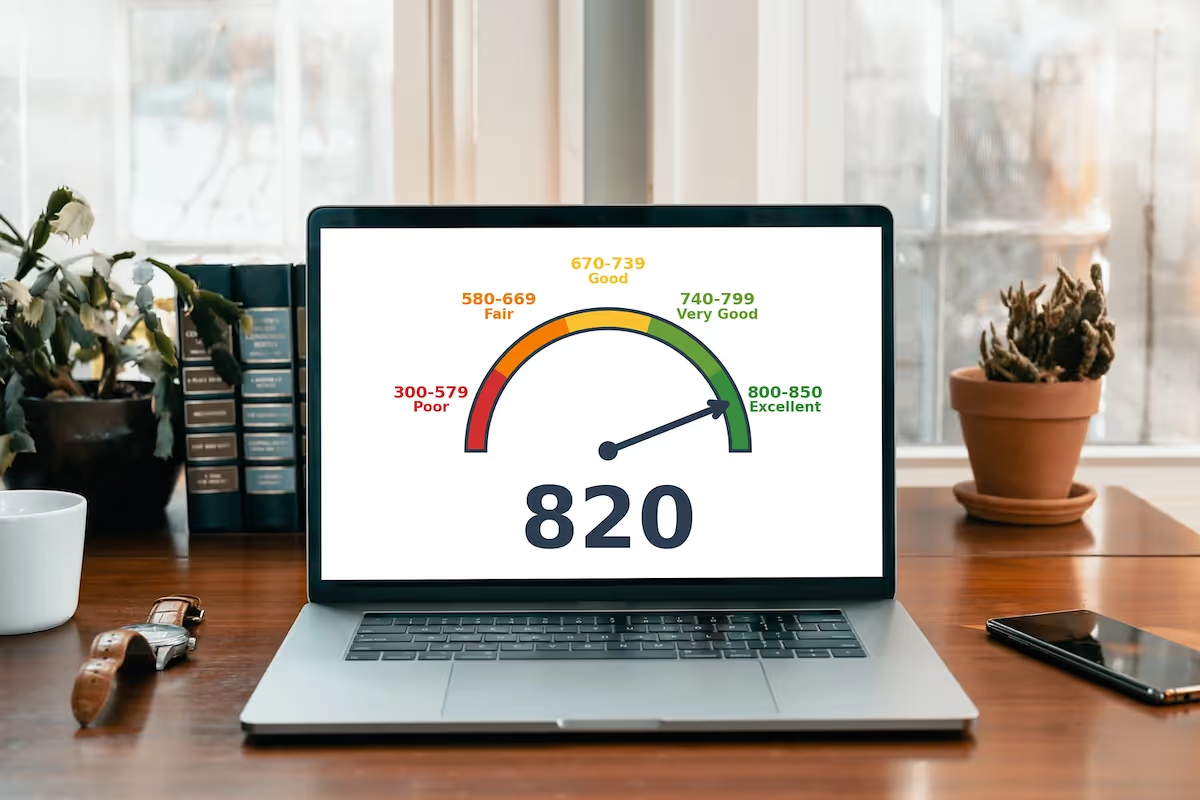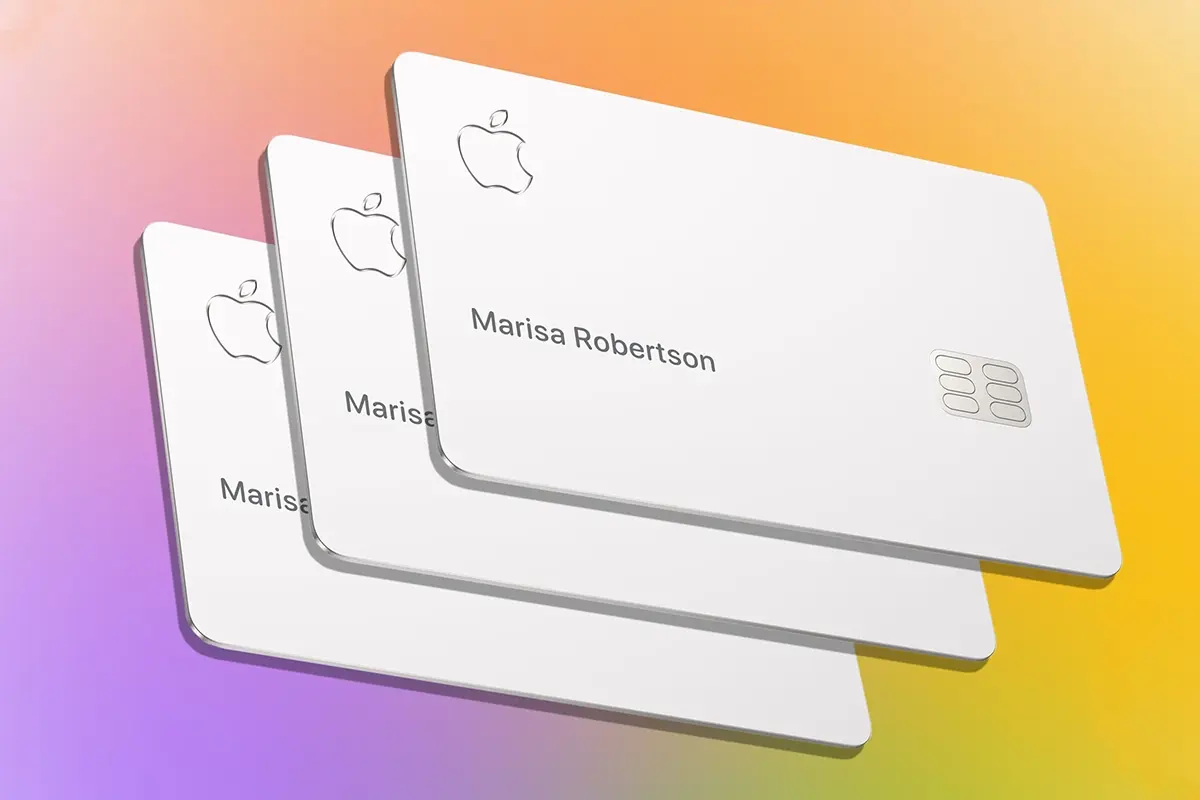
Kudos has partnered with CardRatings and Red Ventures for our coverage of credit card products. Kudos, CardRatings, and Red Ventures may receive a commission from card issuers. Kudos may receive commission from card issuers. Some of the card offers that appear on Kudos are from advertisers and may impact how and where card products appear on the site. Kudos tries to include as many card companies and offers as we are aware of, including offers from issuers that don't pay us, but we may not cover all card companies or all available card offers. You don't have to use our links, but we're grateful when you do!
820 Credit score: What You Need to Know in 2025
July 1, 2025


TL;DR
An 820 credit score is not just good—it's considered outstanding and will open the door to the best financial products on the market. This score places you firmly in the “Exceptional” FICO score range, which is the highest category achievable.
What Does a 820 Credit Score Mean?
An 820 credit score places you in the highest tier of borrowers. On the FICO Score range of 300 to 850, a score of 800 or higher is considered "exceptional." This tells lenders you have an outstanding history of managing debt and paying bills on time. You're viewed as a very low-risk customer, the best possible position when seeking new credit.
Financially, this score is a golden ticket. It unlocks the most favorable interest rates and terms on mortgages, auto loans, and credit cards, saving you thousands. Lenders will likely compete for your business with premium offers. While you've reached an elite level, maintaining these responsible habits ensures you continue to qualify for the best financial products available.
Who Has a 820 Credit Score?
While age isn't a direct factor in calculating your credit score, there is a clear trend of scores improving over time. According to 2023 Experian data, the average FICO score increases with each successive generation.
- Generation Z (ages 18-26): 680
- Millennials (ages 27-42): 690
- Generation X (ages 43-58): 709
- Baby Boomers (ages 59-77): 745
- Silent Generation (ages 78+): 760
Credit Cards With a 820 Credit Score
An 820 credit score is considered excellent, placing you in the top tier of borrowers. Lenders view this score as a sign of exceptional financial responsibility, which significantly boosts your approval odds for even the most exclusive credit cards. Consequently, you can expect to qualify for cards with the best rewards programs, lowest interest rates, and most generous credit limits on the market.
Kudos helps you navigate your options with its AI-powered tools, which provide personalized recommendations from a database of nearly 3,000 cards. The platform's Explore Tool matches cards to your preferences, while the Dream Wallet feature analyzes your actual spending habits to find the perfect fit for your financial situation.
Auto Loans and a 820 Credit Score
With an 820 credit score, you fall squarely into the super-prime category, giving you access to the most favorable auto loan terms available. Lenders view you as a very low-risk borrower, which translates to the lowest possible interest rates on both new and used car loans.
According to a 2025 rate analysis, here are the average interest rates for different credit score brackets:
- Super-prime (781-850): 5.25% for new cars and 7.13% for used cars
- Prime (661-780): 6.87% for new cars and 9.36% for used cars
- Non-prime (601-660): 9.83% for new cars and 13.92% for used cars
- Subprime (501-600): 13.18% for new cars and 18.86% for used cars
- Deep subprime (300-500): 15.77% for new cars and 21.55% for used cars
Mortgages at a 820 Credit Score
An 820 credit score places you in the top tier of borrowers, qualifying you for virtually any home loan available. This includes conventional, jumbo, FHA, VA, and USDA mortgages. Lenders see a score this high as a strong indicator of creditworthiness, which generally leads to an easier and smoother underwriting process. You are considered a low-risk applicant, which opens the door to the best products on the market.
Your excellent credit directly impacts the financial terms of your loan. You can secure the lowest available interest rates, which can save you tens of thousands over the life of the mortgage. A home buying guide notes top-tier borrowers could get rates around 6.2%, compared to 7.8% for those with lower scores. You'll also benefit from lower private mortgage insurance (PMI) premiums and gain negotiating power for perks like reduced closing costs.
What's in a Credit Score?
Understanding your credit score can feel like trying to solve a complex puzzle, as it's a blend of several key financial habits. The most common factors that determine your score include:
- Your payment history tracks whether you have paid past credit accounts on time.
- Credit utilization is the percentage of your available credit that you are currently using.
- The length of your credit history considers the age of your oldest account and the average age of all your accounts.
- Credit mix refers to the variety of credit products you have, such as credit cards, retail accounts, and loans.
- New credit inquiries and recently opened accounts can also temporarily impact your score.
How to Improve Your 820 Credit Score
Even with an excellent 820 credit score, there is always room for improvement, and consistent positive financial habits can help you maintain your standing. Whether you're aiming for a perfect score or simply protecting what you've built, there are several proven methods to enhance your creditworthiness.
- Monitor your credit reports regularly. Even with a high score, this practice helps you catch inaccuracies or signs of identity theft that could unexpectedly harm your rating. Regular monitoring is a key defensive strategy for protecting the excellent credit you've worked hard to achieve.
- Keep your credit utilization low. Maintaining a utilization ratio well below 30% is crucial for preventing any sudden drops in your score. Even a temporary spike from a large purchase can cause a dip, so keeping balances low demonstrates stability.
- Diversify your credit mix. Lenders like to see responsible management across different types of credit, such as both revolving credit cards and installment loans. If your history is concentrated in one area, adding a different type of account can strengthen your profile even further.
- Limit hard inquiries. While the impact is often temporary, applying for too much new credit in a short period can cause small, unnecessary dips in your score. Strategically spacing out applications helps you avoid these minor fluctuations and maintain your peak rating.
For help managing your cards and maximizing rewards as you maintain your score, consider using a financial companion tool like Kudos.
Unlock your extra benefits when you become a Kudos member

Turn your online shopping into even more rewards

Join over 400,000 members simplifying their finances

Editorial Disclosure: Opinions expressed here are those of Kudos alone, not those of any bank, credit card issuer, hotel, airline, or other entity. This content has not been reviewed, approved or otherwise endorsed by any of the entities included within the post.



































.webp)





.webp)

